Denson Paul Pollard came to the attention of many with the release of his solo CDs while still a member of the Hong Kong Philharmonic-a post he accepted in in 2001. A master-recitalist and devotee of the bass trombone as a solo instrument, his recordings: Up from the Bottom, Point in Time, and Listening exhibit the love and attention to detail of a true connoisseur of the instrument. He accepted the position of bass trombonist in one of the greatest orchestras in the world, The Metropolitan Opera Orchestra, in 2007. Pollard has appeared as a soloist and recitalist at the International Trombone Festival, The Eastern Trombone Workshop and throughout the globe. We at davidbrubeck.com are overjoyed to host Denson Paul Pollard as the fifth respondent for the second year of our interview series ‘Seven Positions’.
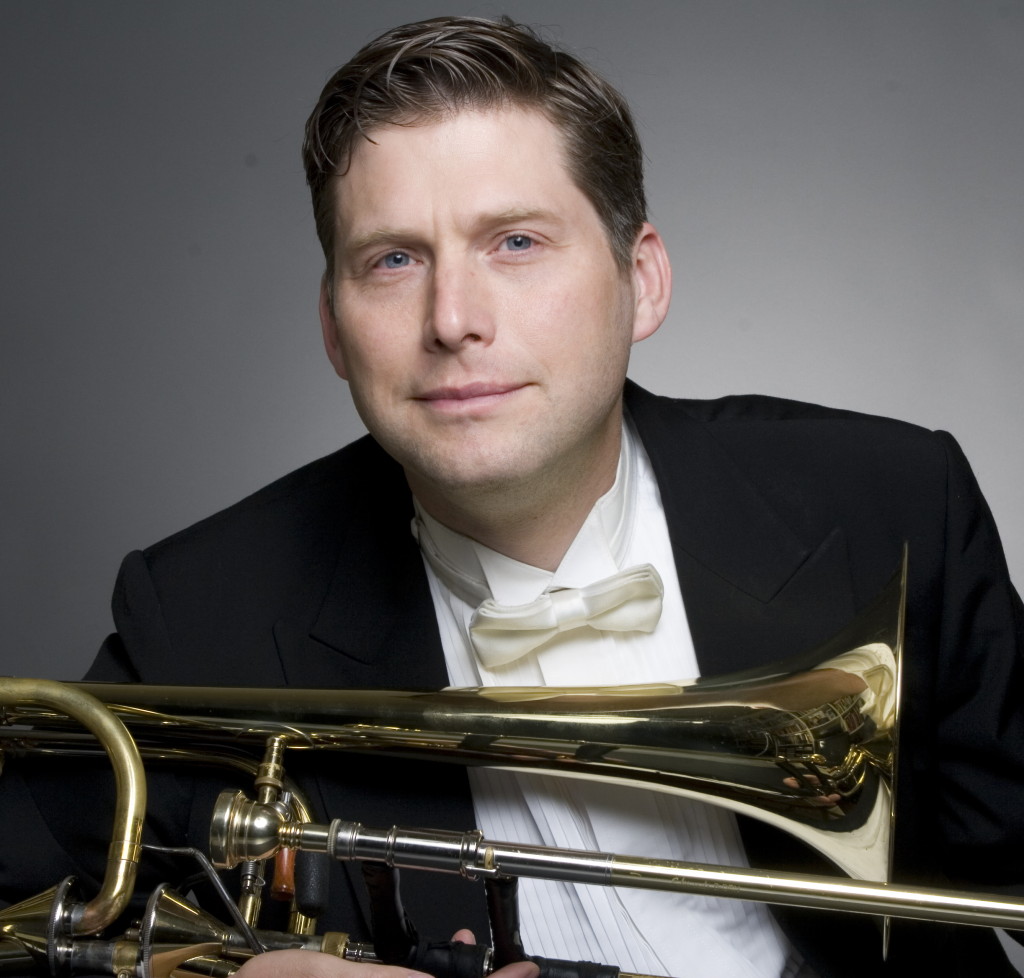 1st Position
1st Position
What do you look for in an instrument?
In a musical instrument I think that it is important that the instrument respond easily without a lot of physical effort.
2nd Position
How do you conceive of an ideal tone quality?
For me the ideal tone quality is a sound that is clear without having to be loud. Unfortunately, many trombone players focus too much on playing loud and not enough on having a clear easy sound.
3rd Position
What is your secret to a beautiful legato?
I really feel that the key to having a beautiful legato sound is continuous air , a light tongue, a precise slide and a good mental image of how you want to sound.
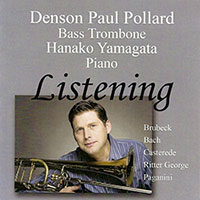
4th Position
What helps you achieve musical expression?
I think the key to being able to express yourself musically on the trombone is to listen to vocal music as much as possible. It has been said before (and I totally agree with the idea), that the human voice is the greatest musical instrument ever created.
5th Position
Name two inspirations. One musical. One non-musical.
Perhaps my greatest musical inspiration has been Joe Alessi. He is such a legend on the instrument that it almost sounds cliche to list him as an inspiration, but he is truly the greatest trombone player that I have ever been around.
I guess nobody really knows if Jesus was musical or not. Jesus has been my most important non-musical influence through reading the Bible and learning how he taught how to treat others, how to act ourselves and work hard.
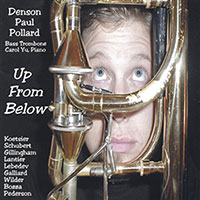 6th Position DPP
6th Position DPP
When did you fall in love with recital music, and how important has it and your relationship with your accompanist been to you? Any favorite pieces?
I learned to enjoy performing solo music while I was in graduate school at the University of Iowa. In order to earn my doctoral degree, I had to perform four recitals. Under those circumstances, if you did not learn to love the process, you were in trouble. Fortunately, I made peace with that process.
Having a good accompanist is crucial for a good and effective solo recital. I have been very fortunate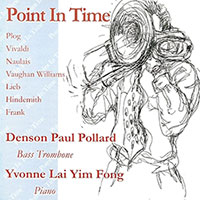 to have worked with many very fine piano players. I think that generally pianists are under-appreciated. We, as trombone players, have much to learn from them, if we are able to open our ears and minds to what they are doing.
to have worked with many very fine piano players. I think that generally pianists are under-appreciated. We, as trombone players, have much to learn from them, if we are able to open our ears and minds to what they are doing.
7th Position DPP
How have you imagined the future of classical music and the bass trombone from the perspectives of Hong Kong and New York?
Unfortunately, I am a little worried about the future of classical music in America. The biggest reason is that music education programs around the United States are being cut. I just wonder if it will be possible to have symphony orchestras if no one has been educated at an early age to appreciate this kind of music.
Although China is a budding classical music market, most orchestras and their managements are unorganized and the conditions which classical musicians work under are very raw. Hong Kong is an exception because the Hong Kong Philharmonic was constructed as a British Orchestra.
T1
What is the best trombone playing you have ever heard?
The best trombone playing that I have ever heard has definitely come from the bell of Joe Alessi.
T2
What is the best trombone playing you have done?
I think that currently as a member of the Metropolitan Opera Orchestra, I am as good a trombone player as I have ever been in my career. My mantra as a trombone player is to get better each day.
T3 What would it surprise people to know about focusing on operatic music, and what is it like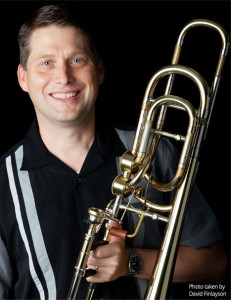 to work for the Met?
to work for the Met?
After working for 7 years at the Metropolitan Opera, I have developed a deep appreciation for the operatic art form. There is no doubt in my mind that I am a much better musician as a result of being around singers and opera music. I think that composers save their greatest music for opera.
Working at the Met is a grind and a thrill at the same time. Because I play bass, tenor, euphonium, and bass trumpet at the Metropolitan Opera, there is never a dull moment for me. I thank God everyday for the opportunity to make money as a musician in an Opera Orchestra.
c. 2013 David William Brubeck All Rights Reserved. davidbrubeck.com
Interested in more “Seven Positions†tm Interviews?
Charlie Vernon
James Markey
Chris Brubeck
Doug Yeo
Jeremy Morrow
Tom Everett
Gerry Pagano
Ben van Dijk
Randall Hawes
Denson Paul Pollard
Thomas Matta
Fred Sturm
Bill Reichenbach
Massimo Pirone
Erik Van Lier
Jennifer Wharton
Matyas Veer
Stefan Schulz
c. 2013/2014 David William Brubeck All Rights Reserved davidbrubeck.com
